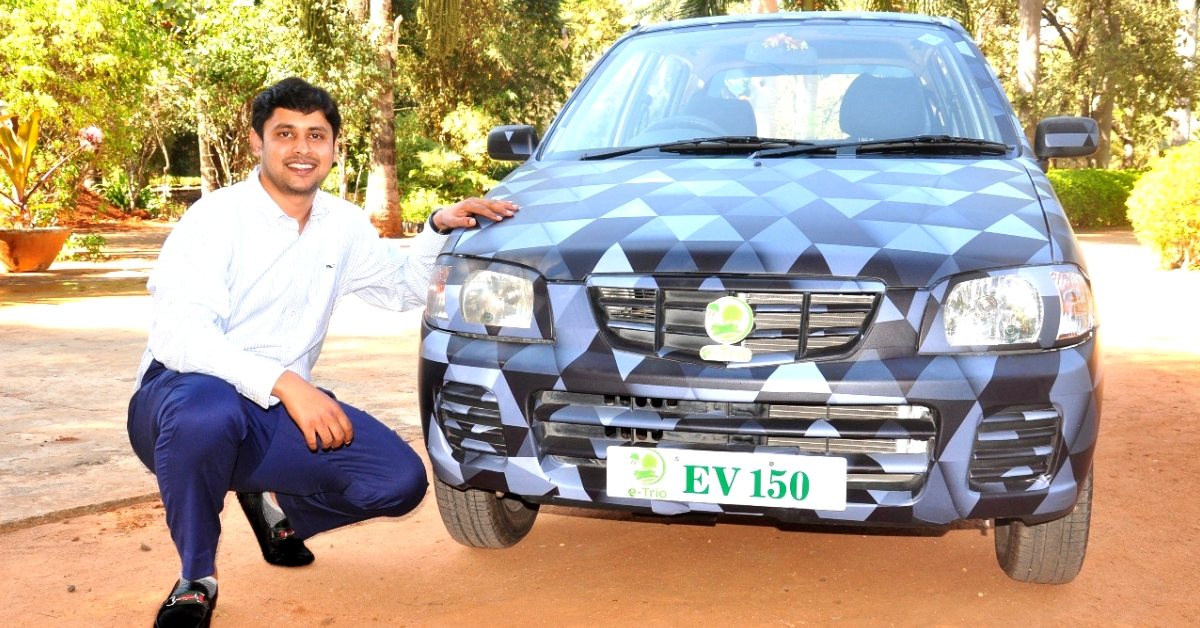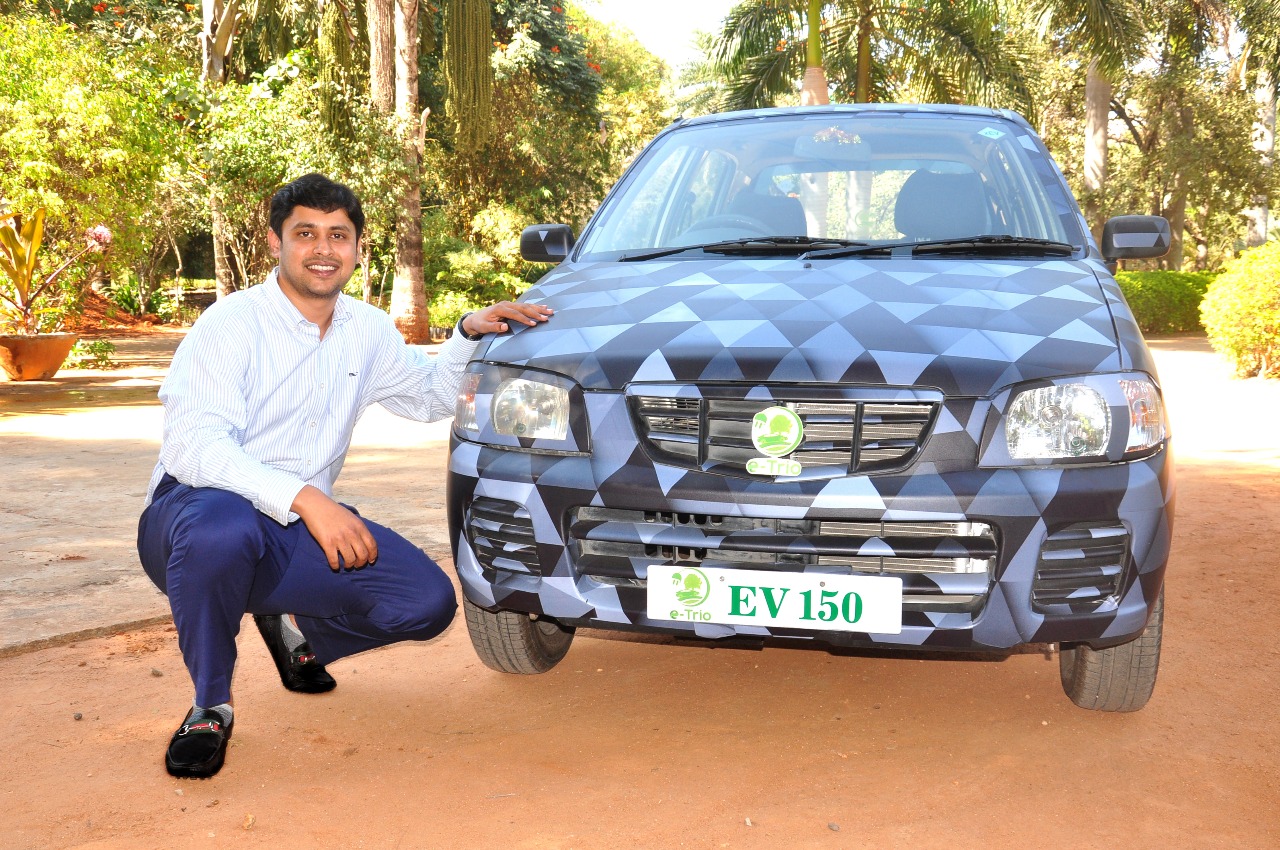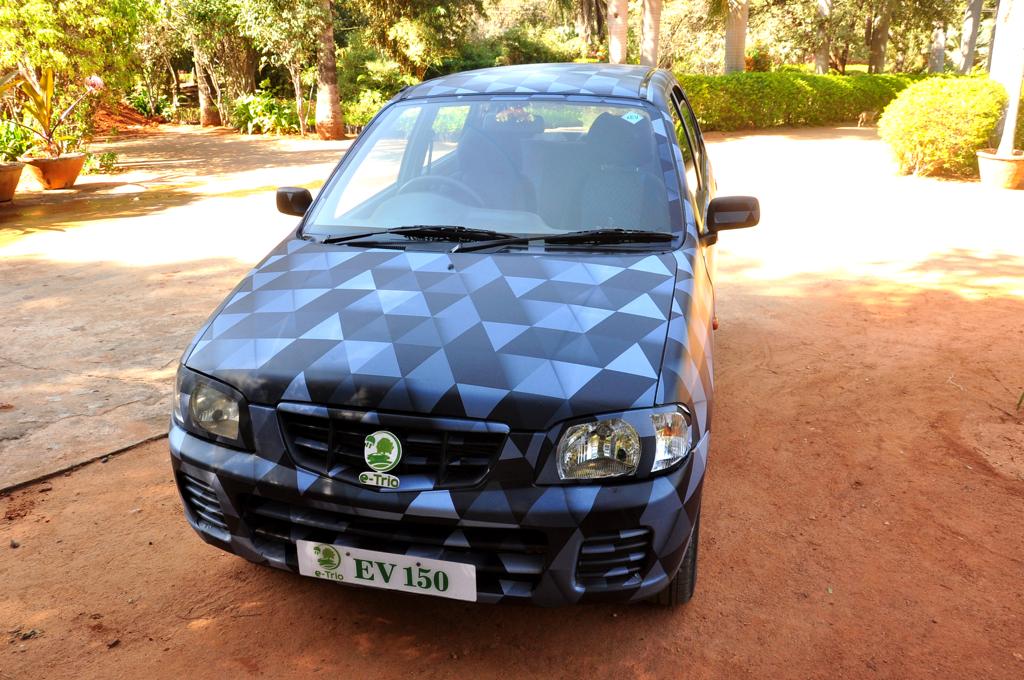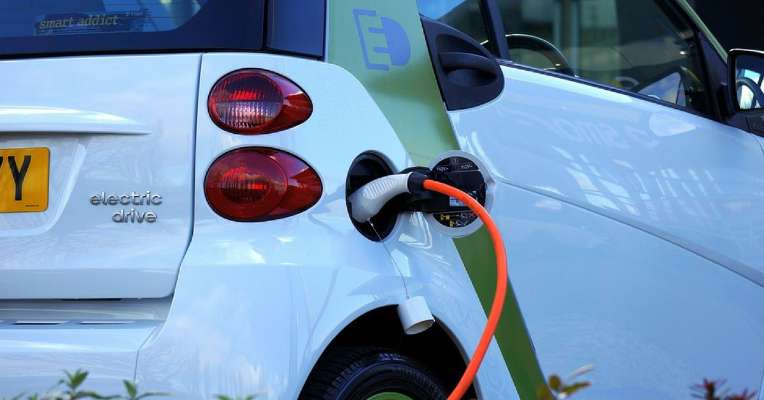Exclusive: Meet India’s First Startup That Can Switch Your Car From Fossil Fuel to Electric!
“We don’t want to add new cars to the road. We just want to make them greener”, say the brains behind this ground-breaking innovation. #GreenIndia #Telangana

With the advent of climate change and dwindling volumes of fossil fuel, governments around the world have been compelled to look for alternatives.
Egged on by the Government of India, vehicle manufacturers are looking at both CNG and electric-driven automobiles as alternatives, particularly the latter.
As a leading proponent of the Paris Climate Accord, India has set a lofty target of having 30% of vehicles in India powered by electricity.
Consumers, however, are expected to pay a higher premium for these vehicles.
But what if they had someone who could retrofit the electric component into their seven or eight-year-old car and as a result have the option of completely going off fossil fuels?
Well, Hyderabad-based startup e-Trio has the answers.
After receiving approval from the Automotive Research Association of India (ARAI), a co-operative industrial research association by the automotive industry with the Ministry of Industries, in June this year, E-Trio is ready to test its retrofitted electric kit on Maruti Suzuki Alto and Wagon R.
It’s the first company in India to have received official sanction from the ARAI for such a product.
“We buy old cars, refurbish them, remove all the petrol or diesel related components and install electric kits. That’s at the essence of it. The process itself is quite complex, especially integrating the electric components. Nonetheless, over a period of more than two years, we have mastered the process,” says Sathya Yalamanchalli, the 32-year-old Founder of E-Trio, speaking to The Better India.
The core components of this retrofitted electric kit (REK) are a motor, controller and lithium ion battery.
After charging it for a full five hours, your car can run for 150 km. Moreover, the electric motor does not require any gears, making it easier for beginner drivers to move around.
“We are working on a prototype, which will extend running time to 250 km per charge. However, this is still under testing,” says Sathya.
Incorporated in 2015, the startup today has 40 employees and its own manufacturing unit in Hyderabad. Besides REKs, the startup is also working on electric bicycles, which are in their testing phase. These e-bicycles will be rolled within the next two months.
A passion for automobiles
Born in the city of Guntur, Andhra Pradesh, Sathya has long been a hardcore automobile enthusiast. “I have loved cars since I was a child, incessantly following the latest developments in the automobile industry and picking up the monthly or fortnightly editions of car magazines. This passion for cars comes from my family, who possess a good collection of vintage cars,” says Sathya.
Following school in Chennai and a few short courses on Electric Vehicle technology from the United States, he worked in about five startups, of which two are currently running above board, while working on finding ways to increase fuel efficiency in Indian vehicles.

“However, everything changed during a 2015 visit to Shanghai on a different project. I could see hundreds of electric vehicles running all around the city. I thought to myself, ‘why don’t we do the same here in India’. You don’t need rocket science to recreate these vehicles here,” he told The Better India.
EVs aren’t new, and they have been around for more than a decade, but the Government of India has only started promoting them recently because of the serious pollution problem that has engulfed our cities.
Why EVs?
However, EVs have other advantages besides not emitting fumes generated by fossil fuel-run engines.
“Apart from pollution, maintenance is almost zero; it’s light on the driver’s pocket with fuel prices almost 10% of what petrol and diesel cost. Drivers can enjoy all these savings and enhance livelihood,” says Sathya.
E-trio built the first two prototypes of its REK midway through 2015 with assistance from an EV startup in China.
“We ensured that the concept worked well there in China before proceeding towards further testing on home base. In this two-year testing process, I was mentored by San Francisco-based retired mechanical engineering professor, Dr Anjaneyulu Krothapalli and his team, helping me a great deal in developing the REK, with the testing and seeing through the maturation of this process by establishing its compatibility with Indian roads and conditions,” he says.
For the time being, e-Trio is looking at business-to-business (B2B) sales, particularly those with a large fleet of cars like cab companies whose drives travel long distances during the day, and not individual customers just yet.
“We’ve received multiple orders from across the country, but are still identifying fleet owners and sell REK package in bulk to bring down the price,” says Sathya.
For the time being, e-Trio will charge their clients a little under $10,000 (Rs 7.18 lakh) for the entire process of retrofitting one vehicle, but with large orders, this price can come down.

Why should consumers acquire REKs?
“For starters, it’s a cost-saving option. On top of the selling price, buying a brand-new car would attract a plethora of state taxes. When you’re talking about a car that has been on the road for seven-eight years, the costs you’ve paid for the car have already been absorbed and instead of buying a new one, you can remodel it to electric. We don’t want to add new cars to the road. We just want to make them greener,” he says.
For individual customers, meanwhile, e-Trio is currently reaching out to several government departments both at the State and Central level, and they’ve been very enthusiastic about the entire venture.
“The government wants to encourage it, but the modalities of subsidising the cost for individual customers are yet to be worked out so that they can purchase these REKs.
However, B2B sales will commence next month, as we’re firming up our business development plans, hiring more people and smoothening the edges of our supply chain management work,” he adds.
However, the key to the success of this start-up will depend on how well India develops its charging infrastructure, which is critical to any EV ecosystem. Cities like Bengaluru are already witnessing the participation of local municipal bodies and state-owned power distribution companies in this regard.
Norway has often been cited as a model example of how governments can aid the process of developing an EV ecosystem with more than 100,000 such vehicles in a country of just 5.2 million people.

“The reason why Norway has such a high rate of EVs is heavy tax subsidy, but over time, we believe, it can be handled on a market basis. For that, some incentives on purchase is a good thing and should be considered by governments that have high ambitions. But the charging infrastructure is what should be given the highest priority, and of course connecting the charging infrastructure to renewables and not coal,” said Vidar Helgesen, Norwegian Minister of Climate and Environment.
Also Read: How Karnataka is Becoming The Centrepiece of India’s Electric Vehicle Revolution
If India can establish its charging infrastructure at the earliest, alongside finding ways to subsidise the sale of REKs you may no longer have to buy a new car. Just retrofit it.
(Edited by Vinayak Hegde)
Like this story? Or have something to share? Write to us: [email protected], or connect with us on Facebook and Twitter.
If you found our stories insightful, informative, or even just enjoyable, we invite you to consider making a voluntary payment to support the work we do at The Better India. Your contribution helps us continue producing quality content that educates, inspires, and drives positive change.
Choose one of the payment options below for your contribution-
By paying for the stories you value, you directly contribute to sustaining our efforts focused on making a difference in the world. Together, let’s ensure that impactful stories continue to be told and shared, enriching lives and communities alike.
Thank you for your support. Here are some frequently asked questions you might find helpful to know why you are contributing?


This story made me
-
97
-
121
-
89
-
167











